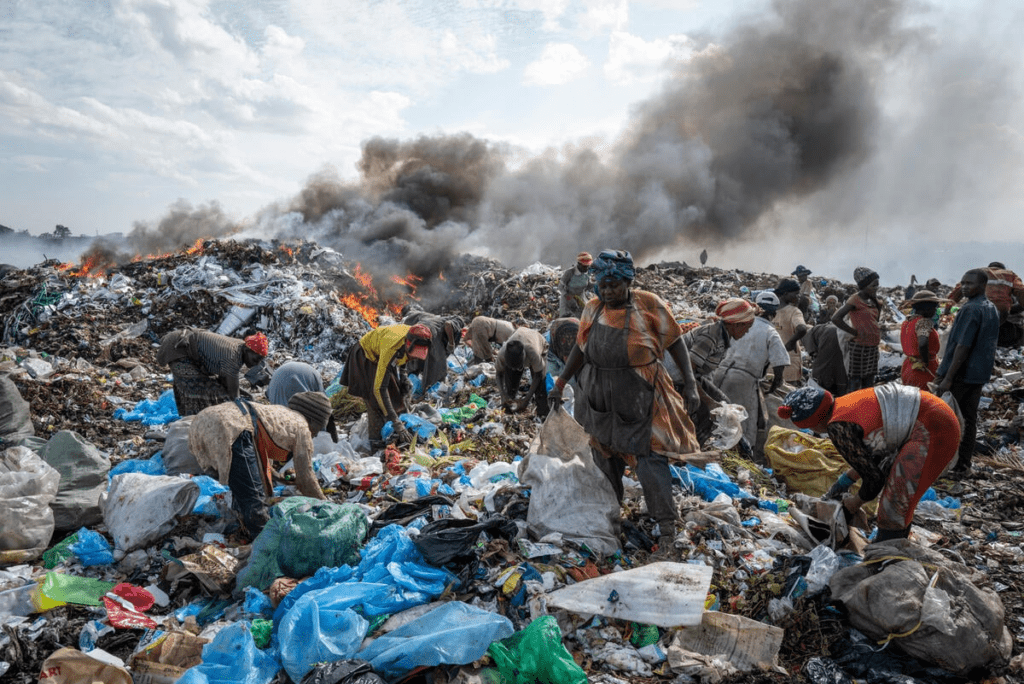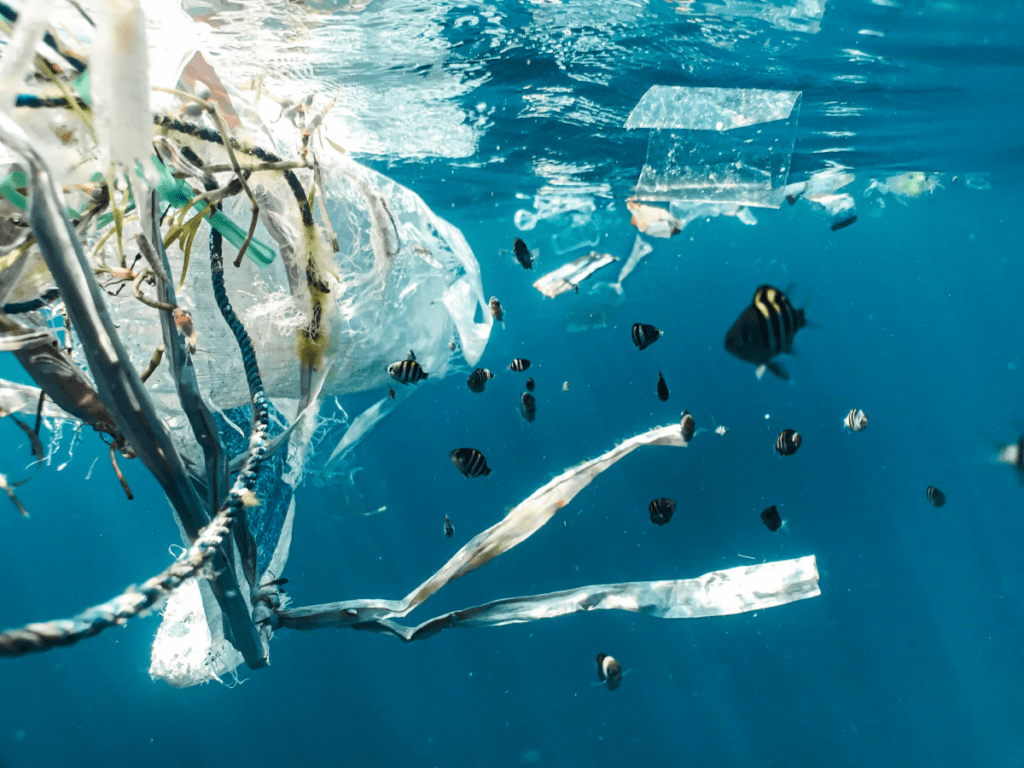Plastic pollution has reached an alarming scale, infiltrating not just our natural environment but our very bodies. From the seas teeming with plastic debris to microscopic fragments in human blood and even the brain, this crisis is pervasive and personal. Every year, the average person unknowingly ingests microplastics equivalent to consuming up to 50 plastic bags—an unsettling reality caused by contaminated food, water, and air.
This November, the United Nations is at a pivotal moment. Member states will convene to negotiate a historic treaty aimed at ending plastic pollution. The need for an ambitious, enforceable, and equitable agreement cannot be overstated. Plastic production has quadrupled over the past three decades, and while recycling efforts exist, they barely scratch the surface of the problem. Without decisive action, projections suggest plastic waste could double by 2040, with catastrophic consequences for ecosystems, wildlife, and human health.
The Far-Reaching Impact of Plastic Pollution
Plastic pollution is more than just an environmental hazard; it’s a human health crisis. Microplastics have been found in seafood, drinking water, and even table salt. In 2022, researchers confirmed the presence of microplastics in human blood for the first time, raising concerns about long-term health effects, including inflammation and potential impacts on organ function.
Marine ecosystems bear the brunt of this pollution. Each year, millions of tons of plastic waste flow into the oceans, where they break down into smaller fragments but never fully degrade. These microplastics are ingested by marine life, making their way up the food chain to humans. Images of entangled sea creatures and birds with stomachs full of plastic have become tragic symbols of a global failure to address this issue.
Why a Global Treaty Is Critical
While numerous countries have implemented bans on single-use plastics, these measures are fragmented and insufficient. The global nature of plastic production and trade demands a unified, international response. A global treaty could establish binding commitments to reduce plastic production, phase out harmful single-use plastics, and invest in sustainable alternatives.
Crucially, the treaty must address the entire lifecycle of plastics—from production and consumption to disposal. It should prioritize reducing virgin plastic production and ensuring that companies are held accountable for their environmental impact. Importantly, it must also be equitable, considering the needs and capabilities of developing nations disproportionately affected by plastic waste exported from wealthier countries.

Public Demand for Change
The momentum for change is undeniable. Environmental organizations, scientists, and millions of citizens worldwide are calling for an end to plastic pollution. At the 2022 UN Ocean Conference in Lisbon, Portugal, a striking sculpture of plastic bottles flowing from a faucet served as a stark reminder of humanity’s over-reliance on this material. It’s a vivid depiction of the urgency of the issue and the necessity for systemic change.
The momentum for change is undeniable. Environmental organizations, scientists, and millions of citizens worldwide are uniting to demand an end to plastic pollution, driven by mounting evidence of its devastating impacts. From grassroots campaigns to global advocacy movements, people are pushing for systemic reform, urging governments and industries to adopt policies that address the entire lifecycle of plastics. At the 2022 UN Ocean Conference in Lisbon, Portugal, a striking sculpture of plastic bottles flowing from a faucet captured the world’s attention. This art installation symbolized humanity’s excessive dependence on plastic and the urgent need to turn off the “tap” of waste at its source. Beyond the symbolism, it highlighted how art can amplify environmental issues, fostering dialogue and spurring action. The public outcry for solutions goes beyond bans on single-use plastics; it demands ambitious innovation, industry accountability, and a genuine commitment to preserving ecosystems for future generations. With awareness campaigns reaching new heights, the call for a global treaty resonates louder than ever. This surge in public advocacy underscores a critical truth: the fight against plastic pollution is as much about equity and justice as it is about environmental stewardship.
The momentum for change is undeniable. Environmental organizations, scientists, and millions of citizens worldwide are calling for an end to plastic pollution. At the 2022 UN Ocean Conference in Lisbon, Portugal, a striking sculpture of plastic bottles flowing from a faucet served as a stark reminder of humanity’s over-reliance on this material. It’s a vivid depiction of the urgency of the issue and the necessity for systemic change.
United Nations and global action against plastic pollution
UN Secretary-General António Guterres has been vocal about the urgent need for global action to tackle plastic pollution. In recent statements, he described the world as “choking on plastic,” highlighting that humanity produces over 460 million metric tons of plastic annually, with half designed for single-use purposes. Guterres warned that if current trends persist, there could be more plastic in the ocean than fish by 2050.
He urged nations to finalize an ambitious and just global treaty to address plastic pollution by the end of 2024. This treaty, under negotiation at forums such as the UN Environment Assembly, aims to implement legally binding measures to curb plastic waste on land and in water. Guterres emphasized the need to address the vulnerabilities of marginalized communities, such as waste pickers, who play a vital role in recycling plastic but often lack proper recognition and support.
For Guterres, this crisis also represents an opportunity for multilateral cooperation. He called for solutions that promote health, environmental protection, and equity, insisting that the international community must rise to meet the demands of people worldwide for decisive action.
The Path Forward
The path forward is fraught with challenges but also immense potential for transformative change. For this treaty to succeed, it must not only be ambitious in scope but also fortified with mechanisms for enforcement that ensure compliance across nations. Key to its success will be the courage of governments to stand firm against the powerful lobbying of the plastics industry, which has long sought to dilute regulatory efforts under the guise of economic protection. Instead, policymakers must embrace a bold vision that prioritizes innovative, scalable solutions such as the development of truly biodegradable materials, investments in advanced recycling technologies, and the adoption of circular economy principles that eliminate waste by design.
Time is an increasingly scarce resource. Each year, the mounting plastic waste crisis claims more ecosystems, endangers countless species, and infiltrates human food chains, with untold consequences for public health. The urgency of the situation demands not half-measures but a definitive, collective response that addresses the problem at its source: the production and overconsumption of plastic. This treaty is a rare and vital chance to pivot toward a sustainable and equitable future. Failure to seize this moment will exacerbate environmental degradation, deepen social inequalities tied to pollution, and risk the well-being of future generations.
The world is watching, and the ball is unequivocally in the UN’s court. People from every corner of the globe are not just hoping but demanding decisive action. It is a moment for leadership, innovation, and unwavering resolve to turn the tide on one of humanity’s most pressing challenges.
Related Content
- LinkedIn – António Guterres – Plastic pollution is all around us and even inside us – from our seas to our blood, to our brains.
- Tackling Plastic Pollution: The EU’s New Directive on Single-Use Plastic Bottles and Attached Caps
- Coral as a Microplastic Sink: A New Solution to the Ocean Plastic Crisis
- Bay Area Scientists May Have Found a Cure for the World’s Plastic Problem
- Startup Replaces 6 Million Plastic Bags with Eco-Friendly Corn Waste Alternative
- [EcoShop] 1pc 600ml/20oz BPA Free Eco Friendly Portable Bottle Large Capacity Plastic Cup, Portable
- [EcoShop] 400pcs Sustainable Bamboo Cotton Swabs – Dual-Tip, Plastic-Free, 100% Natural Cotton Buds For Makeup & Cleaning
- People want action on plastic pollution that’s choking us
- EU calls for agreement on global rules to end plastic pollution
- “Choking on plastics”: Talks of a global treaty

